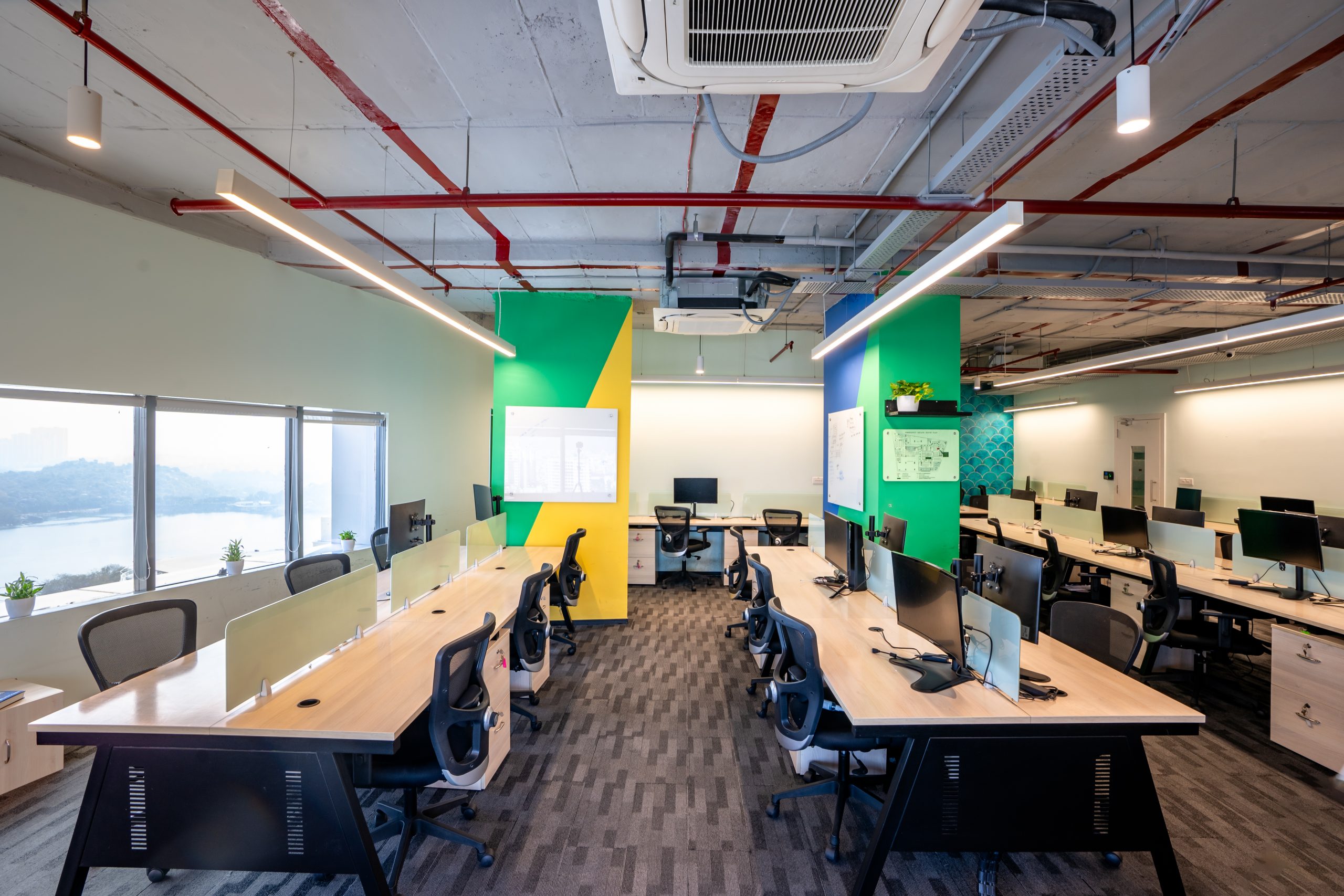
In today’s fast-paced business world, choosing the right workspace is critical. But with so many options, how do you decide between coworking spaces and serviced offices?
Let’s break it down to help you find your perfect match.
What Are Coworking Spaces?
Coworking spaces offer dynamic, community-driven environments where individuals and businesses can thrive in shared, adaptable offices. These shared workspaces are characterized by open workstations, hot desks, and collaborative zones that encourage creativity and networking, with the flexibility that no traditional office can offer.
What Are Serviced Offices?
Serviced offices, on the other hand, offer fully managed office space and private workspaces in a business environment with all the amenities you might need, including conference rooms, fully furnished offices, cutting-edge IT infrastructure, reception services, and round-the-clock support.
Coworking Spaces vs. Serviced Offices: Key Differences
Coworking vs. serviced offices differ significantly in terms of privacy, pricing, scalability, and amenities. While serviced offices offer designated private office setups that ensure confidentiality, coworking facilities prioritize collaboration and offer more open setups with hot desks and open workstations.
The cost structures of both these options vary greatly; serviced offices typically have fixed monthly prices that include utilities and services, whereas coworking spaces often feature flexible membership plans with lower upfront costs.
Scalability is another area of difference between these shared office spaces and custom-designed managed offices; serviced offices usually demand longer-term commitments, whereas flexible workspaces readily accommodate growing teams with shorter lease terms. Additionally, Coworking Spaces in Hyderabad tend to offer minimal amenities to meet a variety of business needs and preferences while serviced offices offer extensive services, including reception and comprehensive IT support.
Pros and Cons: Coworking Spaces
These Plug and Play offices offer many appealing benefits such as lower prices, an active community and networking opportunities, various desk alternatives including dedicated and hot desks, and a vibrant and creative ecosystem. However, they come with potential drawbacks such as shared facilities, distractions, and a lack of privacy.
Despite these disadvantages, many entrepreneurs and remote workers still find the networking opportunities in coworking environments to be more advantageous. According to Statista, 59% of freelancers and small businesses believe that the benefits of coworking outweigh the drawbacks.
Pros and Cons: Serviced Offices
Shared office spaces offer several benefits such as unmatched privacy, access to top-notch facilities, a professional environment, and round-the-clock support, These features make them ideal for well-established companies and organizations seeking support and recognition. However, higher prices compared to coworking spaces and longer lease terms are significant drawbacks, if compared with a Coworking setup.
According to a study conducted by Knight Frank, 40% of big businesses are increasingly opting for serviced offices for their branch offices and growth initiatives, citing advantages including operational efficiency, cost savings, and flexibility.
By evaluating the advantages and disadvantages of serviced offices, companies can make informed decisions about whether these spaces align with their expansion goals and operational needs.
Choosing the Right Workspace for Your Business Type
The primary factor in selecting a workspace is the type and size of the business. For startups and independent contractors, flexible & affordable workspace options that offer networking opportunities can significantly advance their businesses.
On the other hand, expanding teams and small businesses benefit from serviced offices, which offer comparatively more private and professional setups while being strategically located in the city’s commercial hub.
While serviced offices help established firms succeed by ensuring customized plug-and-play office space meets specific business demands, coworking for freelancers encourages creativity and fosters collaboration for small enterprises.
The Future of Flexible Workspaces
Thanks to the rise of remote work trends and hybrid workspace solutions, the future of work will remain flexible According to Deloitte, flexible workspaces will account for 50% of office demand by 2030, emphasizing the growing trend toward flexible office environments.
Businesses should assess their size, budget, and specific needs to find the best workspace solution. One excellent option is iKeva, which offers customized solutions tailored to different requirements. Explore iKeva’s coworking and serviced office options to ensure success, growth, and productivity for your business. Visit iKeva today for a personalized consultation and a tour of our versatile spaces, because your business deserves the perfect fit!
They say, 'beauty lies in the eyes of the beholder' and this adage fits into myriad aspects of our lives;…
Women-owned start-ups generate better revenue and are more promising, but to get investors in the first place is difficult. While…
iKeva lists in the best co-working spaces in India. Coworking spaces in India is on boom with the booming Indian startup…